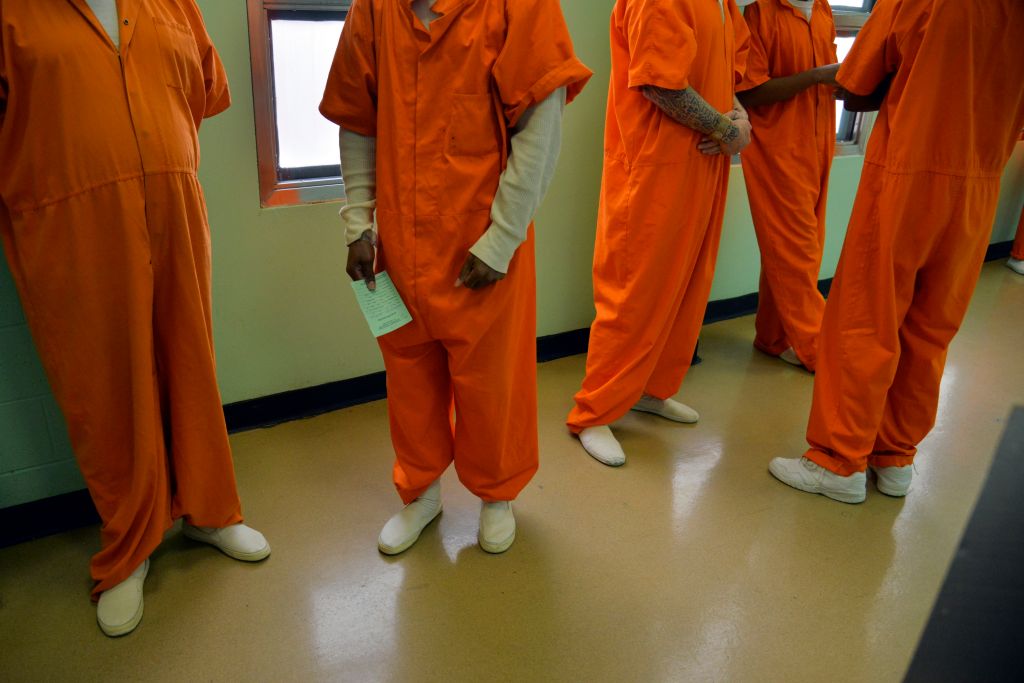‘Be True To What You Said On Paper’: The Judicial System Continues To Fail Black America

Source: The Innocence Project
Two days after the State of Missouri executed Imam Khaliifah ibn Rayford Daniels ‘Abdul-Qudduus, 55, also known as Marcellus Williams, Black America is still, once again, grappling with the reality that laws created and enacted upon this stolen land were neither designed to protect us, nor—at barest minimum—treat us fairly.
We allegedly live in a nation where we are innocent until proven guilty; that’s what it says on paper. Yet, Khaliifah—who chose his name upon taking the Shahada, the formal declaration of Islamic faith—was killed with no credible evidence supporting his guilt. In fact, the opposite is true: the stunning lack of credible evidence supported his innocence. Still, in a system that is not broken—a system functioning exactly as it was created to function—the life of this father, grandfather, spiritual leader, and poet did not matter. “Beyond a reasonable doubt” did not apply to him, as it disproportionately does not apply to far too many Black and Brown people in this fraudulently named Land of the Free.
MORE: A Black Man Was Legally Lynched In 2024
In 2019, during my tenure as Senior Editor of News & Politics, and Executive Producer for Essence magazine, I interviewed Bryan Stevenson, founder and director of the Equal Justice Initiative. In that compelling conversation, we discussed the capital punishment and Stevenson said, in part:
“We, in the African American community, have always known that the criminal justice system is a threat, that it will take people who are innocent or wrongly convicted and it will treat people unfairly…but we keep fighting. I became a lawyer because I really did want to have the skills and abilities to get behind the limitations of democracy…I always want to use that power to help people who are disfavored and disadvantaged, to help people like the people I grew up with.”
“The question we need to ask about the death penalty in America is not whether someone deserves to die for a crime. The question is whether we deserve to kill.” — Bryan Stevenson, Just Mercy
Sept. 21 marked 13 years since the State of Georgia killed Troy Davis. He was 42 years old. Just as in Khaliifah’s case, the U.S. Supreme Court had the power and opportunity to stay his execution again. But despite his alleged guilt not proven beyond a reasonable doubt—in fact, there was evidence supporting his innocence, as well—the nine justices declined to intervene. Every year, I think of him, still, even more so this year in the hours before the State of Missouri executed Khaliifah. I remember the massive outcry as every lever of our government—judicial, legislative, and executive—failed this man. There was a complete abandonment of any pretense that his Black life held any value beyond the cost to convict, incarcerate, and ultimately execute him.
It was judicial homicide.
And here we are again. Knowing that at any moment—whether by a police officer’s bullet, a judge’s gavel, or a governor’s pen—your Black life, your child’s Black life, your mother’s or your father’s Black life, your sister’s or your brother’s Black life, can be snatched away without repercussion. We know this beyond a reasonable doubt, unlike the alleged guilt of Khaliifah and Davis.
Here we are again. Left pondering the incontrovertible fact that if everyone guilty of murder were convicted, sentenced and executed, there would be police departments across this country a lot smaller tonight.
This week, I sat down with civil rights attorney and organizer Lee Merritt. Lee is known for being front-and-center, and behind the scenes, fighting for justice for Jacqueline Craig, Jordan Edwards, Atatiana Jefferson, Botham Jean, Ahmaud Arbery, and many more Black people who have been harmed—and, in too many instances, killed by police officers emboldened by the machinations of a white supremacist system that desecrates Black lives with impunity.
The toll this work takes on him is heavy, but the responsibility and honor he feels working in service of Black people is greater. We discussed his journey as a Black attorney navigating the judicial system and how Bryan Stevenson’s work informs his own practice. We also discussed the synchronicity between the Black Freedom Struggle and fighting to free Palestine from Israel’s 76 yearslong illegal occupation and genocide—something Khaliifah so beautifully and bravely addressed in his poem, “The Perplexing Smiles of the Children of Palestine.” And, as someone committed to justice outside of the courtroom every day, he shared his lived-in experience as a Black man in this nation who, yet again, bore witness to a legal lynching.
Watch and listen to Lee’s powerful, poignant responses here. Be moved by them, yes; but more importantly, be called to action. To the family of Imam Khaliifah ibn Rayford Daniels ‘Abdul-Qudduus, to his friends, loved ones, and all the men incarcerated with him who found strength in his leadership, friendship, creativity, and spiritual wisdom, to Missourians to Abolish the Death Penalty (MADP), the organizers who fought so tirelessly, too often without support, to save his life: We rage with you. We grieve with you.
With love and solidarity always,
Kirsten West Savali
SEE ALSO:
The Execution Of Marcellus Williams Should Call Us All To Demand The Death Penalty’s Abolishment
Is Missouri A Serial Killer? Prosecutors Say Marcellus Williams Is Innocent
The post ‘Be True To What You Said On Paper’: The Judicial System Continues To Fail Black America appeared first on NewsOne.





